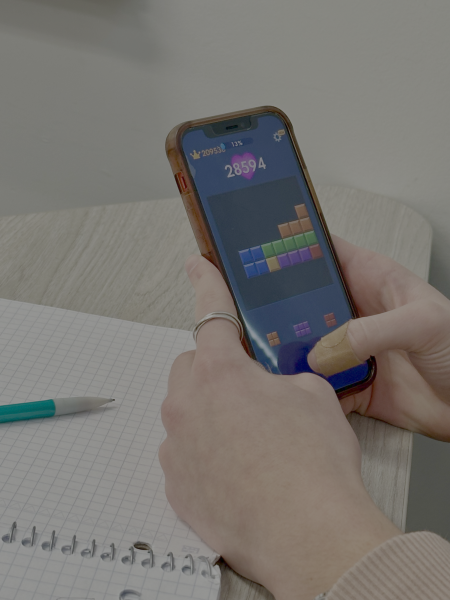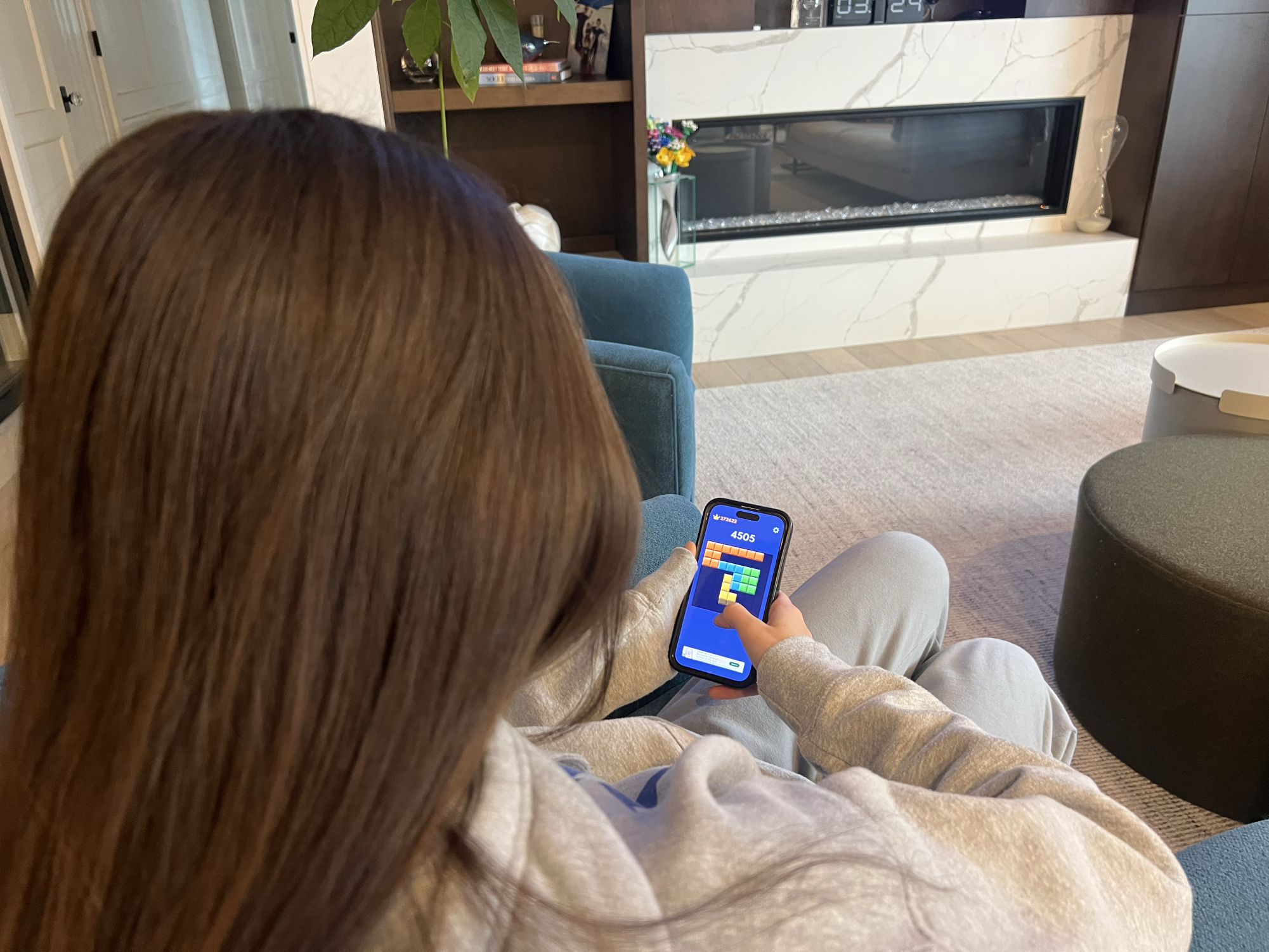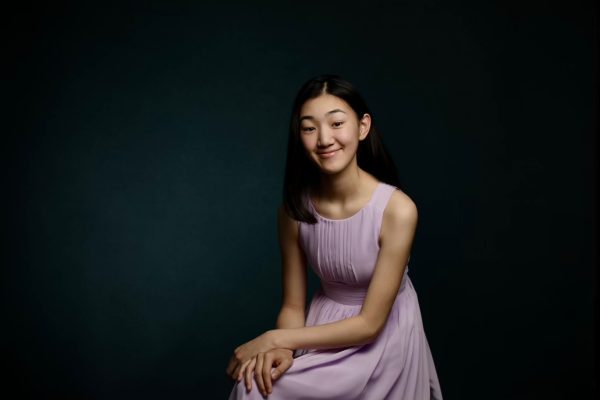Fingers swipe across screens, arranging shapes with practiced ease, as the new digital obsession, puzzle game Block Blast, has taken hold in schools across the country.
For many students, Block Blast has become a part of their daily routine.
“I play it in the five-minute passing periods, at lunch, [and] before I do my homework when I get home,” sophomore Sadie Cohen said. “I’d say it accumulates to around 45 minutes a day. Playing Block Blast, it can feel like a couple of minutes have gone by, then suddenly you realize it's been over 10.”
Beyond just a way to pass time, the game also offers an enjoyable break for Sadie from other mentally taxing parts of her day.
“It’s become a game I can play mindlessly, and it takes my mind off of all the stress from school,” she said.
As much as Block Blast serves as a stress reliever, it is also a source of personal challenge.
“It is a pretty relaxing game,” Sadie said, “but in all honesty, I enjoy the competitiveness that’s grown from it becoming so popular—not just trying to beat other people’s high scores, but my own.”
That personal drive has changed the way Sadie thinks about the time spent on her phone.
“Block Blast is really helpful for me getting off of social media platforms,” she said. “Maybe this is just something I’ve grown to believe, but 30 minutes [of] playing a block game feels much less bad for me than 30 minutes [of] scrolling on TikTok.”

While Sadie sees Block Blast as a healthier alternative, some are more skeptical of its value.
“I think a lot of the appeal from Block Blast comes from the fact that it's not very difficult to get good scores, but it also doesn't require a lot of thinking to play. It's just a mindless game,” junior Carolena Tognarelli said. “Those kinds of mindless games are not very good when we think about the kinds of apps that we are using today.”
Carolena’s skepticism stems from the way Block Blast players perceive this simplicity.
“I think people believe that because they’re putting these blocks in a place and clearing the board, it is a puzzle game requiring them to think a lot, but Block Blast literally just gives you the blocks that you need most of the time,” she said.
Due to the ease of accumulating points, Carolena eventually ceased playing Block Blast. “I used to play it every day, but now I don’t anymore because it’s just gotten boring and repetitive,” she said. “It's just another app on my phone.”
Her experience points to a broader pattern. “I think the success of mobile games shows that people are enticed to engage in simple activities that give them instant gratification,” Upper School history teacher Grzegorz Gaczol said.
Sadie noted that the appeal isn’t just about gameplay. “The way apps are marketed also plays a huge role in people's screen time,” she said. “The better you think something is for you, the more you are going to use it.”
Adding an additional layer, Mr. Gaczol points to the role of social dynamics. “I think there’s a popularity or word of mouth component,” Mr. Gaczol said. “If someone is playing a particular game, their friends are likely to want to enjoy the same activity.”
Sadie agreed. “I personally never want to feel like I am missing out on a trend and am definitely willing to spend more time on my phone if that means feeling included,” she said.
“It is trends like Block Blast that compel people to be on their phones even more,” she added.
With the dual effect of jumping on the bandwagon of Block Blast while also encouraging more phone use, Sadie views the game as a cultural connector.
“As fun as it is to play, it’s also fun to be able to relate with so many people over this one game,” she said. “Block Blast is something that’s become a big part of our generation.”












block blast • Jun 4, 2025 at 8:57 pm
Nobody can’t do the block blast glitch and that’s what makes u unique